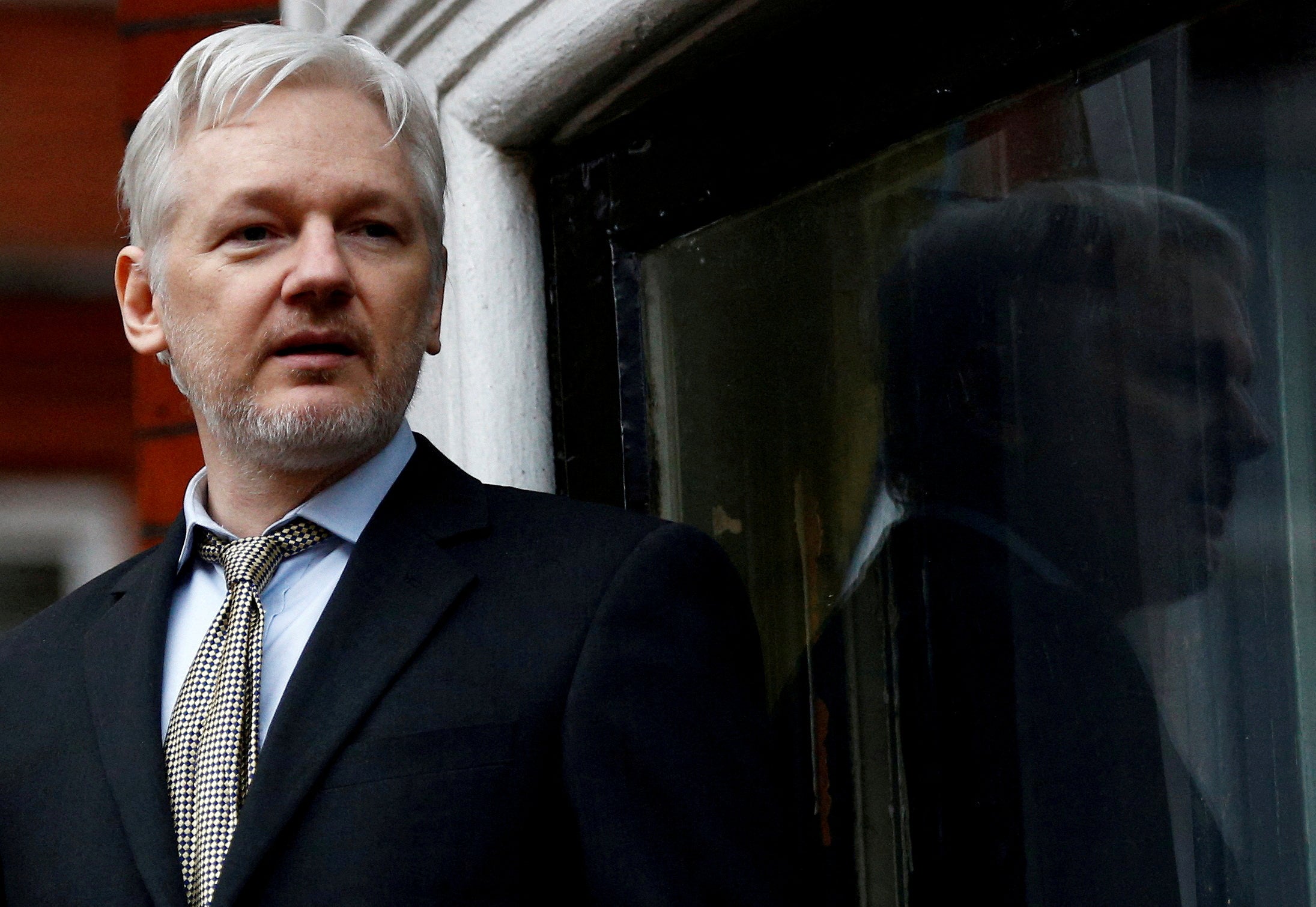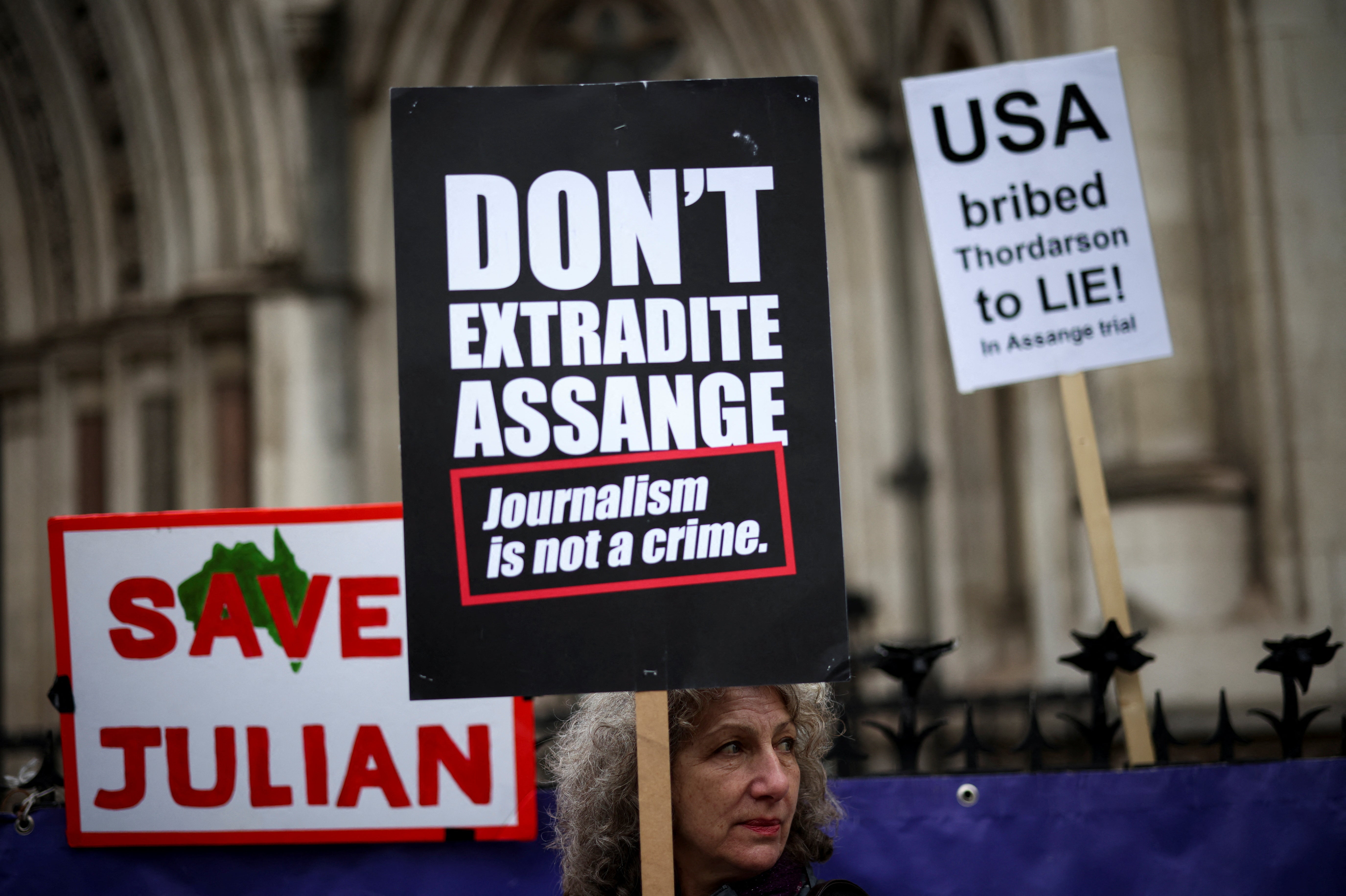Julian Assange refused permission to appeal against US extradition by UK’s top court
Assange is wanted in America following WikiLeaks’ publication of classified files

Your support helps us to tell the story
From reproductive rights to climate change to Big Tech, The Independent is on the ground when the story is developing. Whether it's investigating the financials of Elon Musk's pro-Trump PAC or producing our latest documentary, 'The A Word', which shines a light on the American women fighting for reproductive rights, we know how important it is to parse out the facts from the messaging.
At such a critical moment in US history, we need reporters on the ground. Your donation allows us to keep sending journalists to speak to both sides of the story.
The Independent is trusted by Americans across the entire political spectrum. And unlike many other quality news outlets, we choose not to lock Americans out of our reporting and analysis with paywalls. We believe quality journalism should be available to everyone, paid for by those who can afford it.
Your support makes all the difference.Britain’s top court has refused WikiLeaks founder Julian Assange permission to appeal against a decision to extradite him to the US to face spying charges.
A Supreme Court spokesperson said that senior judges had refused Assange’s bid to challenge the decision as his case did not raise “an arguable point of law”.
The ruling appears to exhaust Assange’s legal avenues in the UK to avoid extradition, however he could still seek to take his case to the European Court of Human Rights.
The 50-year-old is wanted in America following WikiLeaks’ publication of classified files relating to the Afghanistan and Iraq wars in 2010 and 2011.
US authorities brought a High Court challenge against a January ruling by then-district judge Vanessa Baraitser that Assange should not be sent to the US, in which she cited a real and “oppressive” risk of suicide.
After a two-day hearing, the Lord Chief Justice Lord Burnett, sitting with Lord Justice Holroyde, ruled in favour of the US last year.
The senior judges found that Judge Baraitser had based her decision on the risk of Assange being held in highly restrictive prison conditions if extradited.

However, the US authorities later gave assurances that Assange would not face those strictest measures either pre-trial or post-conviction unless he committed an act in the future that required them.
Lord Burnett previously said that if the original judge had been given those assurances at the time of her ruling, “she would have answered the relevant question differently”.
The WikiLeaks founder’s lawyers had sought to appeal against that decision at the Supreme Court, arguing it raises “serious and important” legal issues.
In January, Lord Burnett, sitting with Lord Justice Holroyde, refused permission for the appeal, adding that the decision of whether to hear the appeal was up to the Supreme Court.
In her January 2021 ruling blocking the extradition, Judge Baraitser found in favour of the US on all issues except Assange‘s mental health.
Assange has previously indicated that he wants to challenge the original judge’s other findings.
Additional reporting by PA
Join our commenting forum
Join thought-provoking conversations, follow other Independent readers and see their replies
Comments